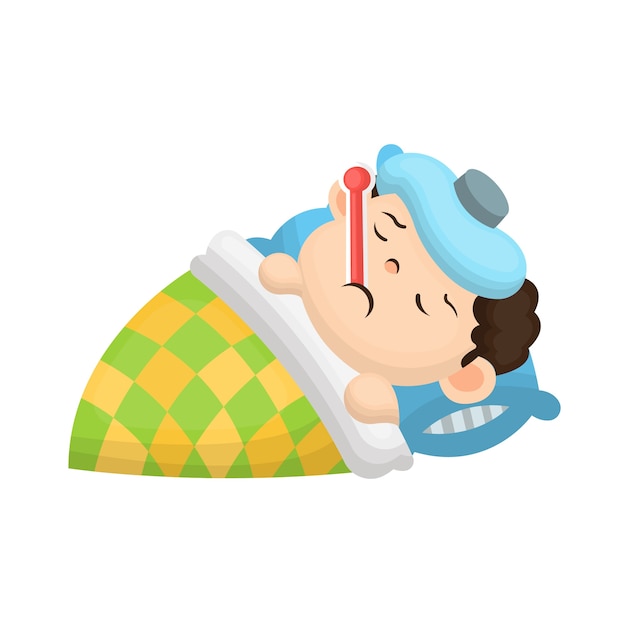Parent Information
General Information for Parents/Guardians
If your child is absent and needs to stay home, please provide a note from the physician - if one was needed.
If your child is going to have surgery and will be out for a prolonged period of time, please call or make an appointment to see me.
If your child will be absent for longer than two weeks, they may require home instruction. This will entail a doctor's note requesting home instruction with a diagnosis. Please call or make an appointment to see me as soon as you get that diagnosis.
Is Your Child Too Sick For School?
Early in the morning is often a difficult time to make the decision whether or not your child is too sick to go to school. With minor symptoms you often cannot tell if they are going to get better or worse during the course of the day.
The main reason(s) for keeping your child or children home are:
1) They are too sick to be comfortable at school,
2) They might spread a contagious disease to other children, or
3) They are injured and need clearance to return
As a rule of thumb, a child who has a fever, vomiting, diarrhea, a very frequent cough, persistent pain (ear, stomach, headache, etc.), or a widespread rash should stay home. Most of these problems need to be discussed with your child’s health care provider.
On the other hand, children who don’t have a fever and only have a mild cough, runny nose, or other cold symptoms can be sent to school without any harm to themselves or others. The following guidelines may help in you decision-making process:
- Runny or stuffy nose- If your child is exhibiting the classic symptoms of a mild head cold (runny or stuffy nose, slight cough and watery eyes) but does not have a fever; there is no reason she/he can’t go to school. Be sure to instruct him/her to take proper hygienic precautions to prevent sharing the germs with his/her classmates, including frequent hand washing, covering their mouth when coughing or sneezing, and refraining from sharing any eating and drinking utensils.
- Fever - (over 100.0 degrees) is an important symptom. While you can treat the fever and usually make the child feel better temporarily, the cause of the fever is still there. Your child should be fever-free for 24 hours (without medication) before sending them back to school.
- Severe cough- Children with a bad cough need to stay home, and possibly see a doctor. A bad cough can be a symptom of bronchitis, flu, or pneumonia. Once the child is feeling better, send him/her back to school. Don’t wait for the cough to disappear completely, as that could take a week or longer.
- Sore throat -- A minor sore throat is usually not a problem, but a severe sore throat could be strep throat – even if there is no fever. Keep your child home from school, and contact a doctor. If he/she has strep throat, they can return to school 24 hours after antibiotic treatment begins.
- Diarrhea and vomiting will make a child very uncomfortable. A single episode of vomiting, without any other symptoms, may not be reason enough for the child to miss school. PLEASE be sure the school can reach you if symptoms occur again during the day!! If diarrhea or vomiting persists or are accompanied by fever, rash, or general weakness; consult your physician and keep the child out of school until the illness passes.
- Pink eye or conjunctivitis- can be caused by a virus, bacteria, or allergy. Consult with you child’s doctor to see if antibiotics are needed. Again, the child should stay at home until symptoms subside and they have been on antibiotics at least 24 hours.
- Flu- is a contagious virus that usually occurs in the winter months. Symptoms include: body aches, high fever, chills, congestion, sore throat, and in some children, vomiting. The child should stay at home until these symptoms subside, usually 5-7 days. Consult your child’s doctor for treatment.
- Ear infections- can cause great discomfort and often fever, but are not thought to be contagious to others. The child should see his/her doctor for diagnosis and treatment and should stay home if they have fever or pain.
If your child is returning to school with an injury, please obtain a doctor's note for the absence and return.
If your child has a CASTS, SLINGS & SPLINTS- A physician's note is needed. It must state the nature of the injury, any limitations or restrictions and the dates the student is excused from physical education and recess.
Notification of Illness
 I will call you, when warranted, if your child needs to go home. Children should be picked up within 30 minutes of the call.
I will call you, when warranted, if your child needs to go home. Children should be picked up within 30 minutes of the call.
If your child has a temperature of 100.4 degrees or higher, they MUST go home, and stay home until they are fever-free for 24 hours without medication. This is per the NJ Department of Health guidelines.
If your child has a suspected contagious illness, or lice, you should notify me immediately and keep child home.
I will notify you for the following:
1. Illness with fever, active repeat vomiting, diarrhea.
2. Head wounds or severe hit to head.
3. Severe wounds especially when may require sutures.
4. Suspected broken bones/fractures “student states they can’t walk”.
5. Fainting, disorientation.
6. Suspected contagious illness.
7. Anything other student complaint or issue that the nurse feels she needs to report to you as needed.
